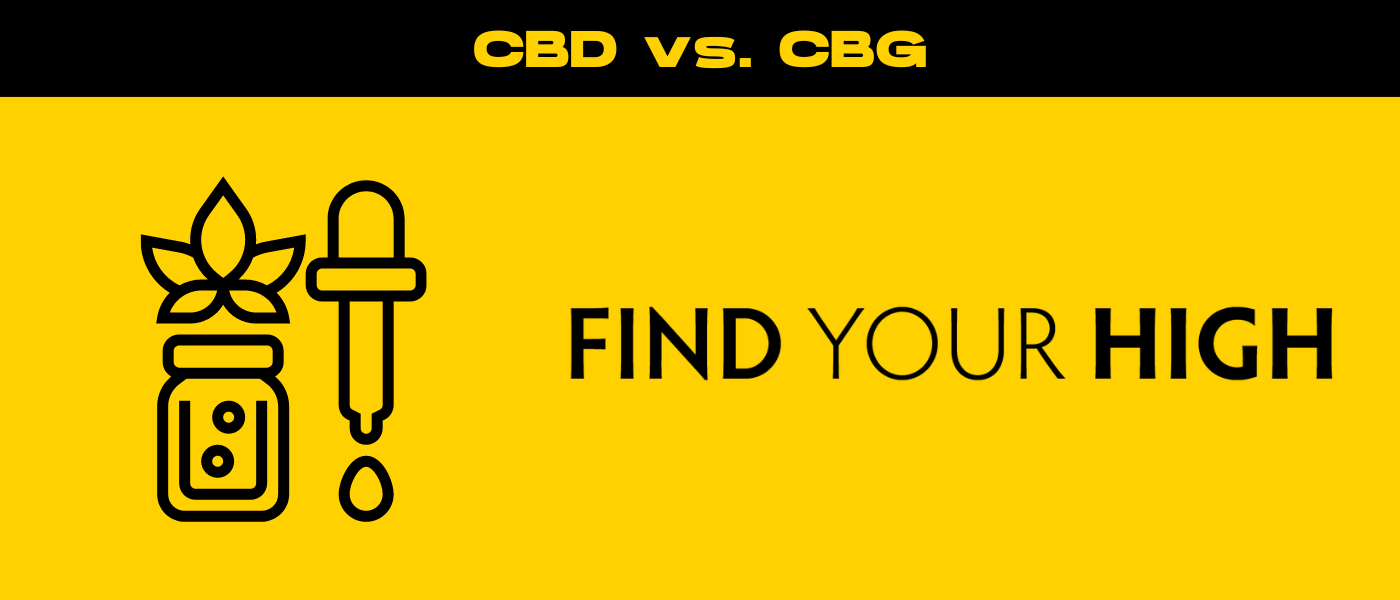In recent years, the interest in cannabinoids has skyrocketed due to their potential health benefits and therapeutic benefits. After all, everybody is looking for that magic “pill” to boost their daily health and wellness.
Now, among the many different cannabinoids discovered, Cannabidiol (CBD) and Cannabigerol (CBG) stand out for their unique properties and effects on the human body. While CBD has gained considerable attention for its ability to alleviate various ailments without psychoactive effects, CBG is emerging as a promising compound with its own set of benefits.
This blog aims to dissect the differences, similarities, and distinctive advantages of CBD vs CBG, providing you with a clear understanding of what sets these two cannabinoids apart. We’ll explore their chemical structures, health benefits, side effects, legal status, and applications in medical and wellness communities.
So, if you’re looking to boost your wellness ritual, continue reading to learn more about CBD and CBG!
What is CBD?
Cannabidiol, or CBD, is a major cannabinoid found in the cannabis plant. Unlike its more famous cousin, THC (tetrahydrocannabinol), CBD—including CBD oil—does not produce a high, making it an appealing option for those seeking relief from various ailments without the psychoactive effects. The discovery of CBD dates back to 1940, but it has gained significant attention in the past couple of decades due to its therapeutic potential.
Globally, the legal status of CBD varies. In many countries, CBD is legal as long as it contains low to no levels of THC. However, the precise legal landscape can differ significantly from one country to another, and in some cases, from one state or region to another within the same country.
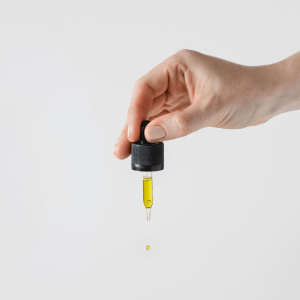
Benefits of CBD
CBD has been studied for its potential health benefits, which include:
- Pain relief: CBD is believed to interact with the body’s endocannabinoid system to reduce inflammation and alleviate pain.
- Anxiety and depression reduction: Several studies have found that CBD may help ease anxiety and depression, making it a possible alternative to traditional psychiatric medications.
- Neuroprotective properties: Research suggests that CBD may benefit those with neurological disorders, such as epilepsy and multiple sclerosis.
- Benefits for skin conditions: Due to its anti-inflammatory properties, CBD is being incorporated into skincare products to treat conditions like acne, dermatitis, and psoriasis.
Side Effects of CBD
While CBD is generally considered safe, it can have some side effects, including:
- Potential liver damage: High doses of CBD may have adverse effects on the liver.
- Interactions with other medications: CBD can interact with certain medications, altering their effects.
- Changes in alertness: Some people may experience drowsiness or changes in alertness when taking CBD.
What is CBG?
Cannabigerol, or CBG, is a lesser-known cannabinoid compared to its cousins CBD and THC. Often referred to as the “mother of all cannabinoids,” CBG is the precursor from which all other cannabinoids are synthesized.
This non-psychoactive compound is found in lower concentrations in cannabis plants, which makes it a bit more scarce and, in many cases, more expensive to produce. Unlike CBD, CBG interacts directly with the cannabinoid receptors in the brain, potentially offering different health benefits.
Recent scientific research on CBG has started to reveal its therapeutic potential, albeit more studies are needed to fully understand its effects and benefits.
Benefits of CBG
Inflammatory Bowel Disease Management
Preliminary studies have suggested that CBG may have beneficial effects in managing inflammatory bowel diseases (IBD), such as Crohn’s disease and ulcerative colitis. Its anti-inflammatory properties can help reduce the inflammation associated with these conditions, offering potential relief for sufferers.
Antibacterial Properties
One of the most promising areas of research regarding CBG is its antibacterial properties. Studies have shown that CBG can act against strains of bacteria that are resistant to traditional antibiotics, including MRSA (methicillin-resistant Staphylococcus aureus), showcasing its potential as a new tool in fighting bacterial infections.
Eye Health through Intraocular Pressure Reduction
CBG has also been studied for its potential to reduce intraocular pressure, making it a possible treatment for conditions like glaucoma. Its ability to relieve pressure in the eye could help prevent further damage to the optic nerve and maintain vision.
Side Effects of CBG
Limited Research on Side Effects
Due to the novelty of CBG and the limited extent of research compared to CBD, the full profile of its side effects is not well-known. However, the available studies suggest that it is generally well-tolerated in humans.
Potential Interactions with Medications
Like CBD, CBG could potentially interact with other medications, altering their effectiveness. This emphasizes the importance of consulting healthcare professionals before incorporating CBG into your wellness routine, especially if you are currently taking other medications.
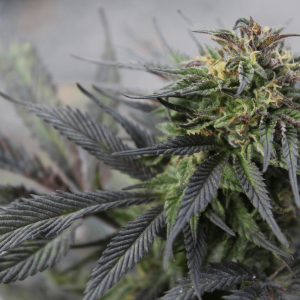
CBD vs. CBG: Extraction and Production
The extraction and production processes of CBG and CBD vary significantly, largely due to the differing concentrations of these compounds in cannabis plants.
CBD, being more abundant, is easier and less costly to extract. This compound can be derived from both hemp and marijuana plants, with hemp-based extractions becoming particularly popular due to legal considerations.
On the other hand, CBG is present in lower concentrations, making its extraction process more complex and expensive. The production of CBG often requires growers to harvest the cannabis plants earlier than normal, as CBG levels are highest before it starts converting into other cannabinoids.
The challenges in producing CBG do not stop at its low concentration. The requirement for specialized extraction techniques, such as chromatography, significantly increases the production costs. This is because these methods are more precise but require more advanced equipment and expertise.
Consequently, CBG products are generally pricier compared to their CBD counterparts, reflecting the increased complexity and reduced yield of the extraction process.
However, as the demand for CBG grows and extraction technologies improve, we can expect these costs to potentially decrease, making CBG more accessible to consumers interested in exploring its benefits. Fingers crossed!
CBD vs. CBG: Chemical Structure
Both CBG (Cannabigerol) and CBD (Cannabidiol) share a similar chemical foundation inherent to cannabinoids, yet they present distinct structural variations that directly influence their function and interaction with the human body. Stick with us, we’re about to get super science-y.
Cannabinoids are characterized by their 21-carbon structure, including hydrogen and oxygen atoms, but the arrangement of these atoms differs between CBD and CBG. This slight variance in chemical structure is pivotal in determining how each cannabinoid interacts with the body’s endocannabinoid system (ECS).
The ECS plays a critical role in maintaining homeostasis within the body, affecting processes such as pain sensation, mood, appetite, and memory. CBG directly binds to the CB1 and CB2 receptors of the ECS, potentially explaining its more direct influence on physiological processes compared to CBD, which has a more indirect interaction with the ECS. This difference in interaction can influence the efficacy and therapeutic applications of each cannabinoid.
Furthermore, the unique chemical structures of CBD and CBG could be why they exhibit distinct therapeutic properties and potential side effects. For example, CBG’s ability to directly engage with cannabinoid receptors might underpin its potent anti-inflammatory and antibacterial effects, whereas CBD’s indirect action could account for its broader application in pain and anxiety management.
The ongoing research continues to reveal how these structural differences affect their respective functionalities, offering exciting prospects for personalized medicine and cannabinoid-based therapies.
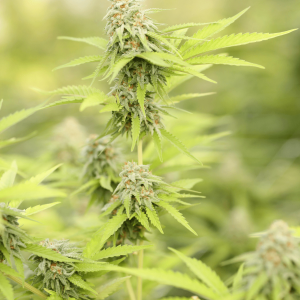
Legal Status of CBD and CBG
The legal status of cannabinoids like CBD and CBG is a complex and evolving issue that varies significantly between jurisdictions.
In the United States, the legal landscape was significantly shaped by the 2018 Farm Bill, which legalized hemp-derived products containing less than 0.3% THC on a federal level. This means that CBD and CBG derived from hemp plants are generally legal in the U.S., provided they meet the THC concentration criteria.
However, it’s important to note that while federal law permits the sale of hemp-derived cannabinoids, state laws can vary. Some states have fully embraced these products, providing clear regulatory frameworks for their sale and use, while others have imposed restrictions or outright bans.
International Legal Status
The legality of CBD and CBG varies worldwide, leading to a complicated mix of rules. Many places distinguish between products from hemp and those from marijuana, generally accepting the hemp ones more.
Yet, in some countries, even hemp-derived CBD and CBG are strictly regulated or illegal. It’s crucial to know the local laws before buying or traveling with these products.
CBD and CBG in Medical Research
Current research into CBD and CBG is showing a lot of promise for future medical use. CBD research is further along, showing it can help with epilepsy, chronic pain, and anxiety. The FDA even approved a CBD medication called Epidiolex for seizures, showing its medical value.
CBG research isn’t as advanced but it’s showing potential in protecting nerve cells, treating cancer, and fighting bacteria that are resistant to antibiotics. Both are being looked into for their anti-inflammatory and brain-protecting effects, suggesting they could be useful for a lot of different medical conditions in the future.
The research into CBD and CBG is just starting to scratch the surface of what they could do, pointing to exciting new treatments on the horizon and highlighting the importance of cannabinoids in future medical breakthroughs.
How to Use CBD and CBG
CBD and CBG are available in various formats, each suited to different preferences and therapeutic needs. Here’s a breakdown of the most common formats:
- Oils and Tinctures: Liquid forms that can be taken orally or added to food and beverages. They usually come with a dropper for dosing.
- Edibles: Includes gummies, chocolates, and other food items infused with CBD or CBG. They offer a convenient and discreet way to consume cannabinoids.
- Topicals: Creams, balms, and lotions infused with CBD or CBG, applied directly to the skin for localized relief.
Dosage Guidelines
Finding the right dosage of CBD or CBG can be a personal journey, as it depends on a variety of factors including weight, age, and the specific condition being treated. Here are some general guidelines to get started:
- Start with a low dose (5-10mg) and gradually increase as needed.
- For oils and tinctures, use the dropper to measure the dose and adjust according to your needs.
- With edibles, pay close attention to the package instructions since the concentration of cannabinoids can vary widely.
- Listen to your body and adjust the dosage based on your response.
Tips for First-Time Users
First-time users may feel unsure about the best way to incorporate CBD or CBG into their routine. Here are a few tips to ease the process:
- Start Small: Begin with a low dose and see how your body reacts before increasing.
- Choose the Right Format: Think about what you’re comfortable with and what fits your lifestyle, whether that’s oils, edibles, or topicals.
- Be Patient: It may take some time to notice the effects, especially with edibles or when looking for psychological benefits.
- Consult a Healthcare Provider: If you have an underlying condition or are taking other medications, it’s advisable to talk with a healthcare professional before starting.
- Keep a Diary: Tracking your dosages and responses can help you find the right balance and effectiveness for your needs.
Choosing Between CBD and CBG
When deciding whether CBD or CBG is more suitable for you, it’s critical to consider your personal health goals, potential side effects, and the availability and cost of products.
CBD, being more established in the market and extensively researched, might be the better option for those looking for relief from anxiety, chronic pain, or seizures. On the other hand, CBG is showing promise for more niche applications, like neuroprotective benefits or combating bacteria resistant to antibiotics, though its products might be harder to find and more expensive due to its lower concentration in hemp plants.
Potential side effects are generally mild for both cannabinoids but can include fatigue, changes in appetite, or gastrointestinal discomfort.
Given the evolving nature of cannabinoid research and the market, it’s also important to stay informed about the latest developments to make a choice that best suits your health needs and budget.
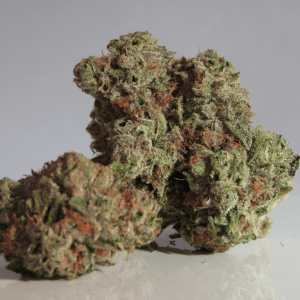
Conclusion
In summary, laws around the world are increasingly recognizing the potential benefits of cannabinoids like CBD and CBG. Thanks to the 2018 Farm Bill in the US, people have wider access to hemp-derived products, although the legal status of CBD and CBG can still vary greatly depending on which state you reside in.
Medical studies show that CBD and CBG could have real health benefits, including managing epilepsy and chronic pain with CBD, and the possible neuroprotective and antibacterial effects of CBG. However, CBD is currently more popular in both the consumer market and clinical research, making it a more accessible option for people looking for relief from various conditions.
When deciding between CBD and CBG, think about what health benefits you’re looking for, the research available, and the cost and availability of products. CBD is known for having a wide range of benefits and is more widely available, but CBG could be a valuable option for certain health issues. Whatever your choice, talk to healthcare professionals, start with small doses to see what works for you, and keep up with the latest research and laws to get the best results.
As research goes on, we’ll learn more about CBD and CBG and how they can play a role in health and wellness. Keeping up with new studies and thinking about your own health goals will help you make the best choice between CBD and CBG.
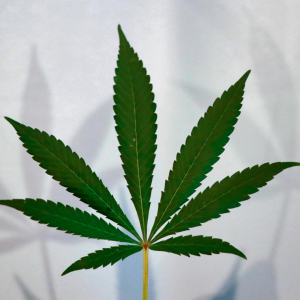
Frequently Asked Questions
1. Which is better, CBG or CBD?
Determining whether CBG or CBD is better depends on your individual health needs and concerns. CBD is more renowned for its extensive research backing its effectiveness in treating anxiety, depression, chronic pain, and seizures.
CBG, while less studied, shows promise in areas such as neuroprotection, fighting antibiotic-resistant bacteria, and potentially aiding in cancer treatment. The choice between CBD and CBG should be based on the specific health benefits you seek and a consultation with a healthcare professional.
2. How does CBG make you feel?
CBG can produce various effects, mostly without the psychoactive high associated with THC. Users often report feeling a sense of calm and relaxation without impairment. Some studies suggest that CBG could help in reducing anxiety and stress, contributing to overall mental wellbeing. However, experiences can vary, and the full range of CBG’s effects is still under investigation.
3. What are the downsides of CBG?
As CBG research is still in its nascent stages, the potential downsides are not thoroughly understood. However, like CBD, common side effects could include mild gastrointestinal symptoms, changes in appetite, and possible interactions with other medications. Costs and availability can also be cons for some, as CBG products tend to be pricier and less widely available compared to CBD products.
4. What are the benefits of CBG?
CBG has shown several potential health benefits in preliminary studies, including antibacterial effects, particularly against strains resistant to conventional medicines. It also has shown promise in protecting nerve cells, suggesting it might be beneficial in treating conditions like Huntington’s disease. Additionally, CBG might offer anti-inflammatory properties that could help in managing conditions such as inflammatory bowel disease.

 Rewards
Rewards




